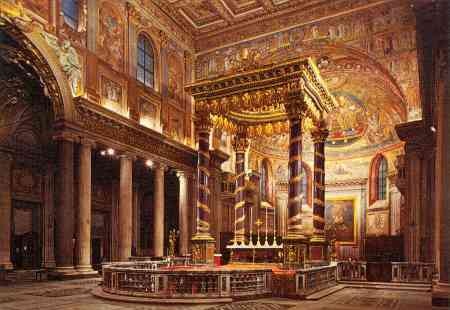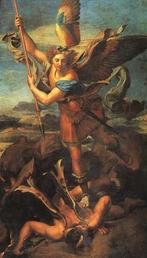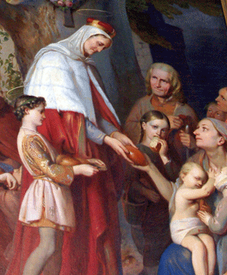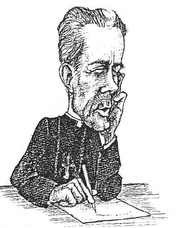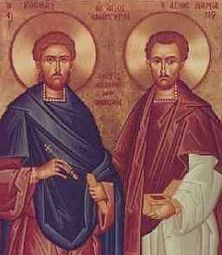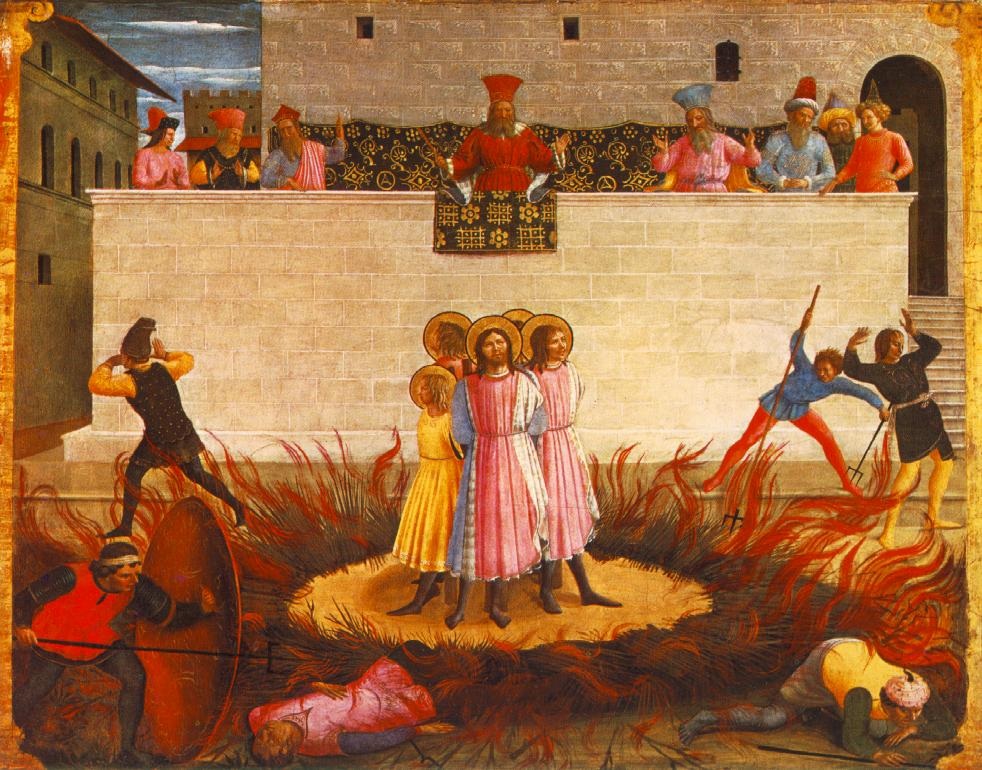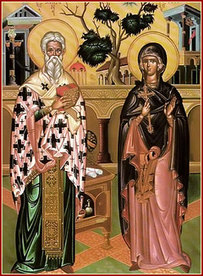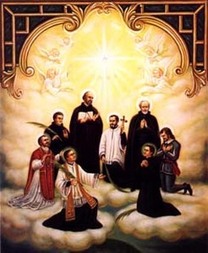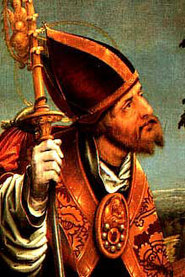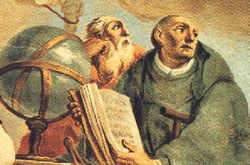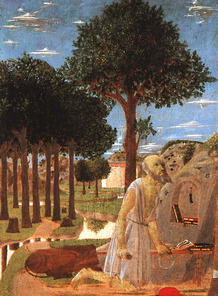
He withdrew himself into the wild deserts of Syria, where he passed four years in studying the Holy Scriptures and in considering the blessedness of heaven, afflicting his body by always denying himself, by bitter tears, and by chastisement of the flesh. He was ordained Priest by Paulinus, Patriarch of Antioch. He went to Rome on account of the quarrelling of certain Bishops with Paulinus and Epiphanius, and there helped Pope Damasus in the writing of his letters upon Church affairs. But the longing for his old solitude came upon him, and he went back to Palestine, where, in the monastery at Bethlehem, built beside the cradle of the Lord Christ by the Lady Paula of Rome, he set himself to enter on earth upon the life of heaven, serving God in reading and writing without ceasing, regardless of the sufferings of a body tormented by divers diseases and pains.
Hard questions upon the interpretation of the Holy Scripture were sent to him from all parts of the earth, as to an oracle. He was oftentimes consulted by Pope Damasus and by the holy Augustine upon the meaning of the most obscure passages of the Scripture, because of his extraordinary learning, and that he knew not the Latin and Greek tongues only, but also the Hebrew and Chaldee, and, as the same Augustine testifieth, had read nearly all writers. He attacked heretics with keen publications, and ever undertook the defence of the godly and Catholic. He translated the Old Testament from Hebrew into Latin, and, at the command of Damasus, reformed, according to the original Greek, the existing version of the New. Upon great part of the Scriptures he wrote commentaries. He translated likewise into Latin the works of many learned men, and himself contributed to the Christian life many monuments of his own wit. He lived to an extreme old age, and passed away to heaven, famous for learning and holiness, in the reign of the Emperor Honorius. His body was buried at Bethlehem, but hath since been brought to Rome, where it lieth in the Church of St. Mary-at-the-Manger.
